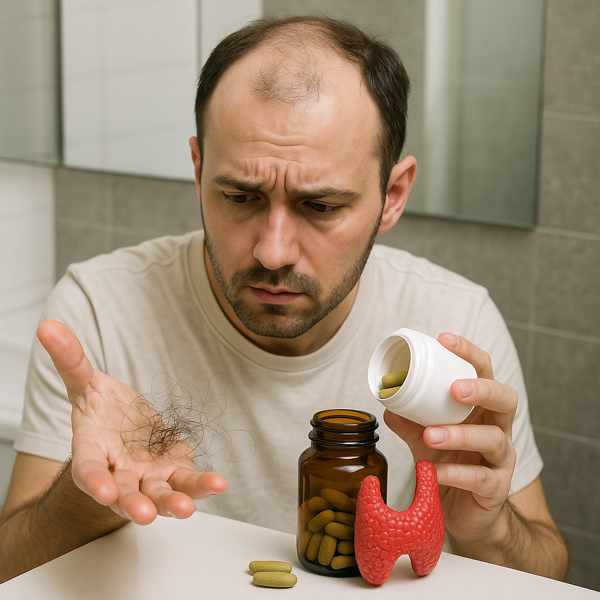
Many people notice their hair thinning during or after a weight loss journey, which can be alarming.
Understanding why this happens and how to protect your hair can help you reach your goals without compromising your confidence.
The Link Between Dieting and Hair Shedding
When your body undergoes a major change — especially fast weight loss — it can respond by pausing non-essential functions like hair growth.
Common causes include:
- Nutrient deficiencies
- Body enters stress mode
- Hormonal imbalances
- The body reacts to sudden changes
Understanding Telogen Effluvium
Most hair loss related to weight loss is called telogen effluvium.
Key facts:
- There’s a delay between cause and effect
- Hair falls out evenly across the scalp
- It often resolves on its own
Eat for Hair, Not Just Fat Loss
If you're trying to lose weight, be sure not to miss these nutrients:
- Protein
- Iron
- Biotin and other B vitamins
- Supports hair tissue repair and growth
- Linked to healthy follicles and hormonal balance
Skipping meals or using crash diets can easily read more lead to deficiencies that trigger hair loss.
Yes — With the Right Strategy
You don’t have to choose between losing weight and keeping your hair.
Tips include:
- Aim for 1–2 pounds per week
- Focus on whole, balanced meals
- Consider a multivitamin
- Manage stress and sleep
- Stay hydrated
Next Steps After Hair Thinning Starts
If you notice excessive shedding:
- It’s likely temporary
- Check for deficiencies or thyroid issues
- Focus on protein and iron intake
- Try gentle hair care
- Hair regrowth takes a few months
Should You Talk to a Doctor?
A doctor or dermatologist can help identify underlying issues like:
- Thyroid dysfunction
- Autoimmune conditions
- Need professional correction
The Truth About Weight Loss and Hair Loss
By understanding what’s happening inside your body, you can take steps to protect your health — and your hair.
Prioritize nourishment, patience, and consistency, and your body will thank you — from head to toe.